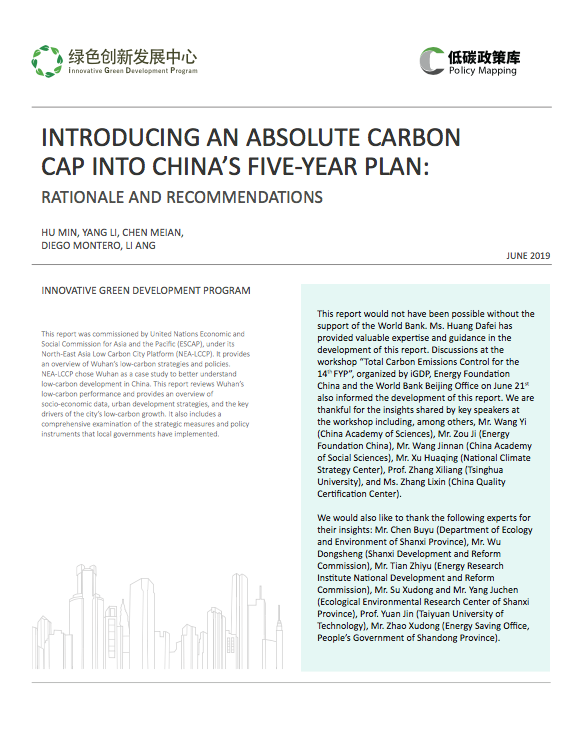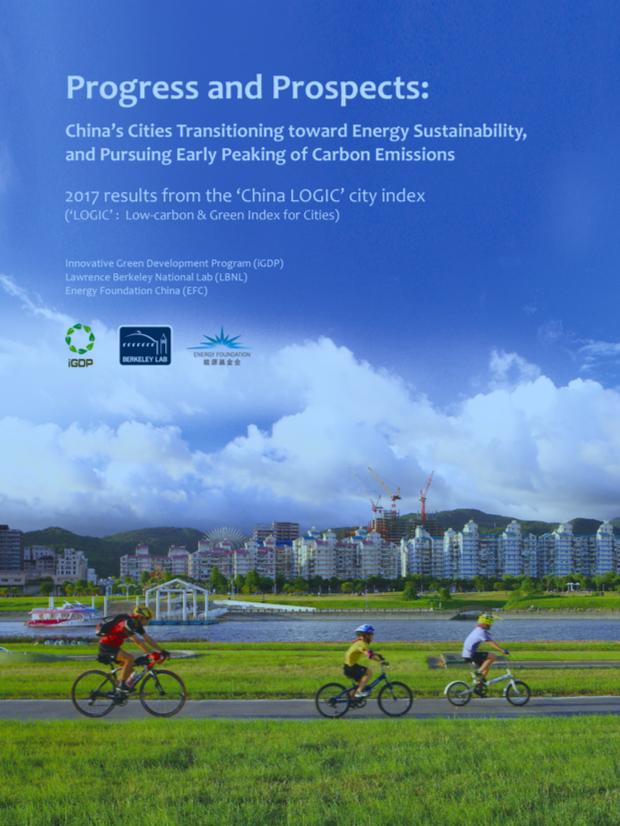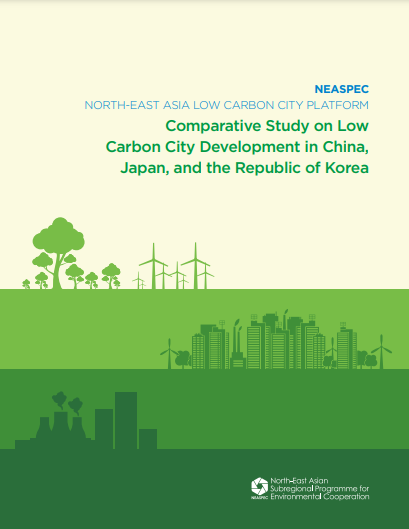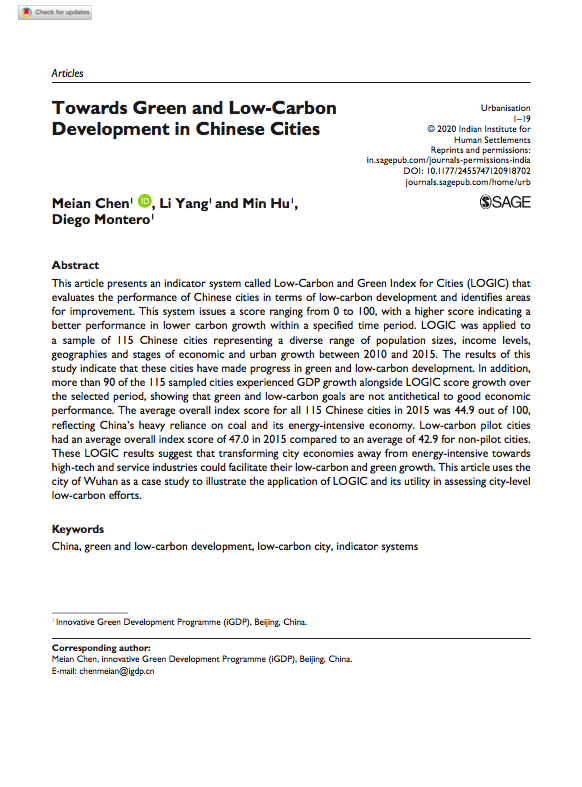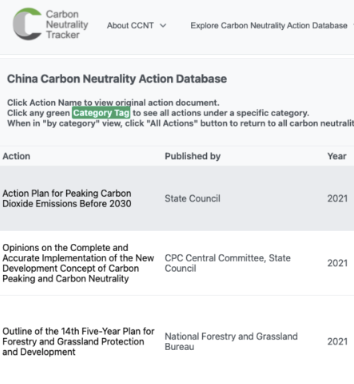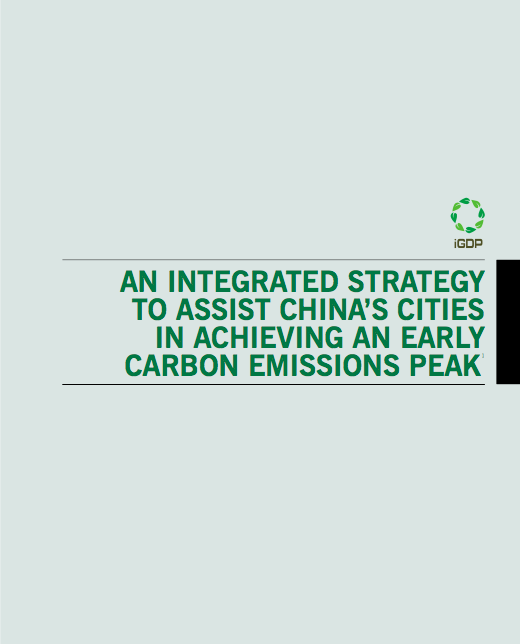Subnational Climate Actions
Cities shoulder important responsibilities in the low-carbon transition of the global economy. According to the United Nations Environment Program, cities consume 78% of the world’s energy and produce 60% of greenhouse gases, and this proportion is gradually increasing. If the publicly announced subnational actions in the world’s ten major economies were fully implemented, it is estimated that the emissions in these countries under existing policy scenarios could be reduced by 3.8%-5.5% in 2030. IGDP tracks the low-carbon transformation actions of non-state entities and offers solutions to the challenges faced by provinces and cities in their transformation process.
To achieve the aims of the Paris Agreement and China’s goals of carbon peaking by 2030 and carbon neutrality by 2060, the country’s regions and cities need to act fast. Actions at these subnational levels need to focus on middle- and- long term zero-emission target setting, plan development, and policy measures. In our Zero-Emission Planning Program, we help regions and cities achieve a climate safe and prosperous future by providing zero-emission planning and other consultancy services. We apply a suite of climate models, strategic frameworks and roadmaps to assist in the development of middle- and-long term carbon reduction, energy transition, and economic transformation plans in every carbon-emitting sector at the regional and city levels.
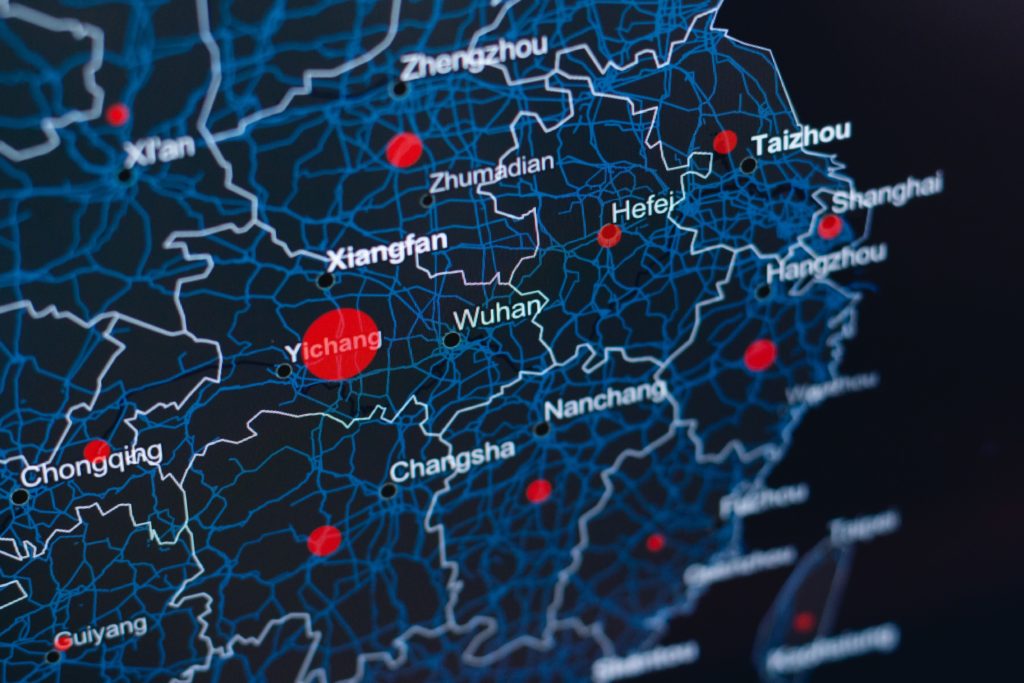
Featured Projects
2019-09-19
Working Paper
There is a need to set a strong economy-wide climate goal to decarbonize economic growth throughout China’s provinces. Without such a goal, a change in investment behavior toward green growth projects is unlikely to happen. Even with existing robust environmental policies and clean energy development objectives, the climate impact of China’s future economic growth remains unclear. With only a short time window left to meet global climate safety goals, introducing enhanced climate policies to limit China’s carbon emissions growth is crucial to the world’s sustainable development.
2018-09-13
Report
Low Carbon Cities
LOGIC provides a system to track progress, a database to evaluate performance, and an analytical tool to help cities identify improved solutions for low carbon and clean energy development, and early carbon peaking.
2021-05-21
Report
This joint paper examines key national-level carbon mitigation policies and sector-specific actions, reviews both top-down and bottom-up low carbon city policy-design and implementation mechanisms and describes fifteen case studies on greenhouse gas (GHG) emission reductions. The study is part of UNESCAP‘s North-East Asia Low Carbon City Platform (NEA-LCCP) programme under the North-East Asian Subregional Programme for Environmental Cooperation (NEASPEC) and will be used in NEA-LCCP information-sharing activities and to promote regional cooperation on low carbon development and climate action.
2020-07-20
Research Publication
This report presents an indicator system called Low-Carbon and Green Index for Cities (LOGIC) that evaluates the performance of Chinese cities in terms of low-carbon development and identifies areas for improvement. This system issues a score ranging from 0 to 100, with a higher score indicating a better performance in lower carbon growth within a specified time period. LOGIC was applied to a sample of 115 Chinese cities representing a diverse range of population sizes, income levels, geographies and stages of economic and urban growth between 2010 and 2015.
2020-05-16
Tool
China Carbon Neutrality Tracker is an online database and interactive platform that tracks China’s carbon neutrality actions at the national, subnational and sectoral levels. Information can be searched and sorted by issuing institution, release date, sector and action type.
2018-01-08
Working Paper
Shanxi Carbon Cap
City Peaking LCCP Policy Brief
Progress and Prospects of Peaking Pioneer Cities
Peak Planning Guide Policy Brief
Coordinated Control of Air Quality and Climate Change Analysis
Qingdao and Wuhan Climate Action Planning
Harmonizing Ecology and Economy – Developing Sustainable Energy and Climate Action Plans (SECAP)
An Integrated Strategy to Assist China’s Cities in Achieving an Early Carbon Emissions Peak
Hainan Green Gold and Zero Carbon Refrigeration

